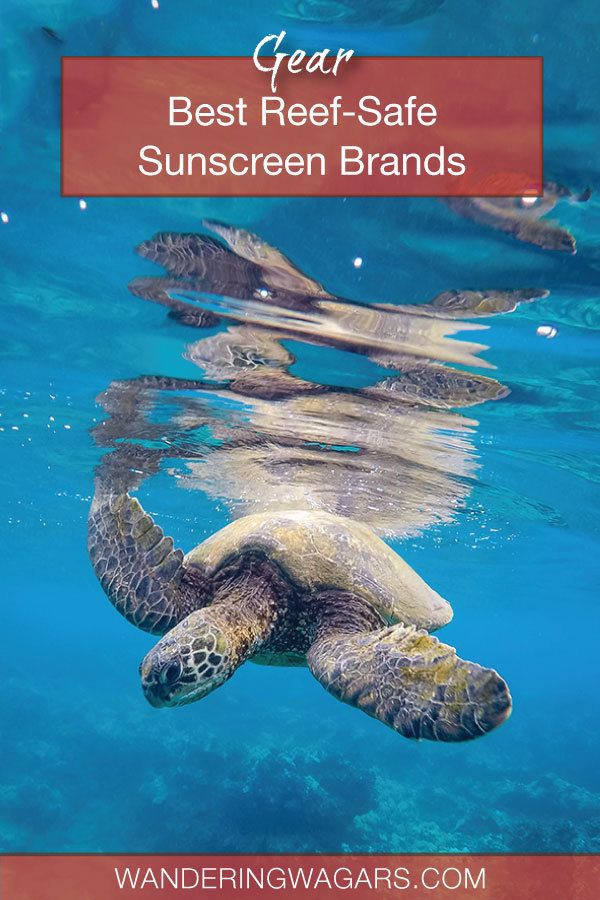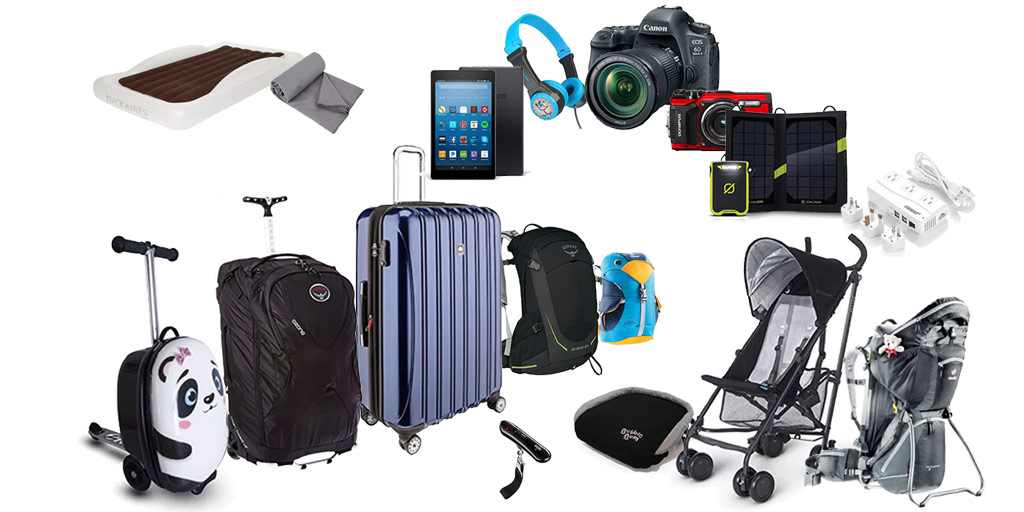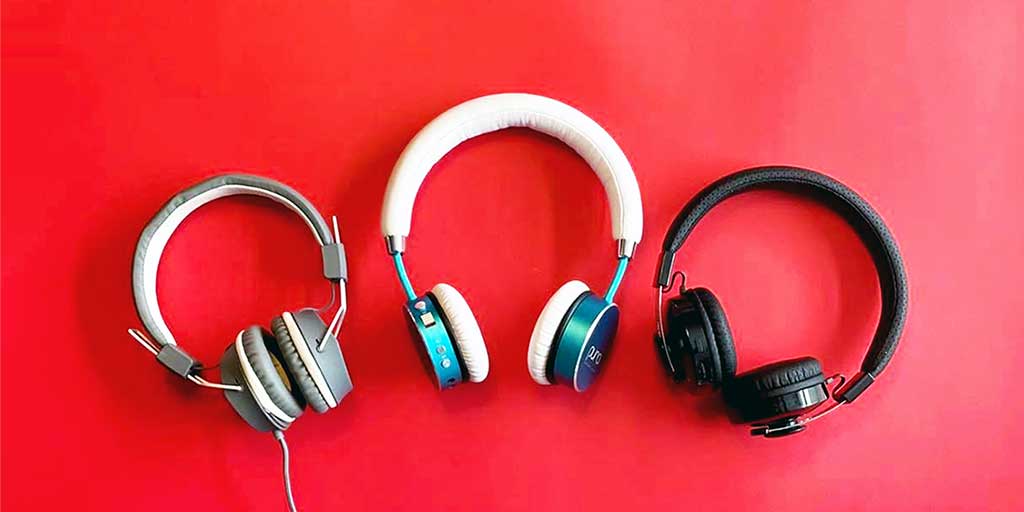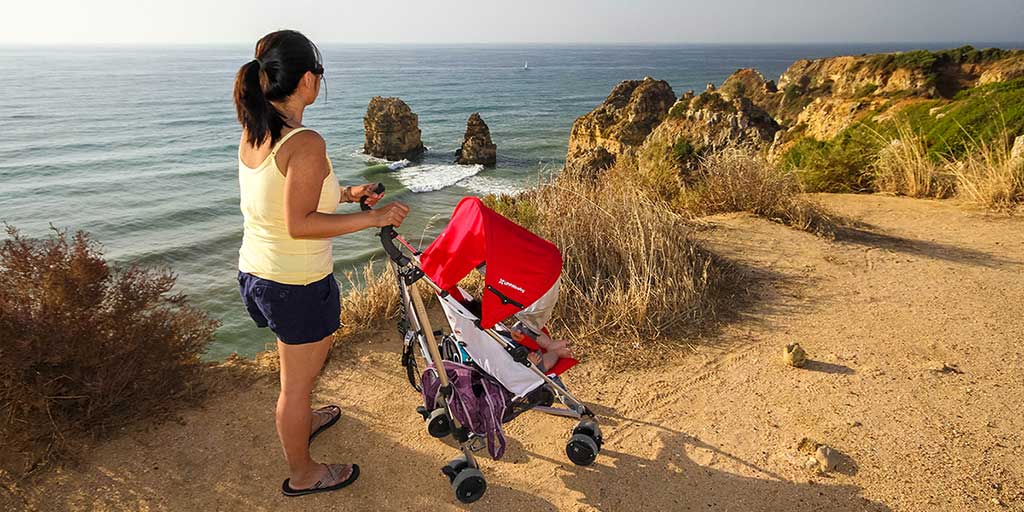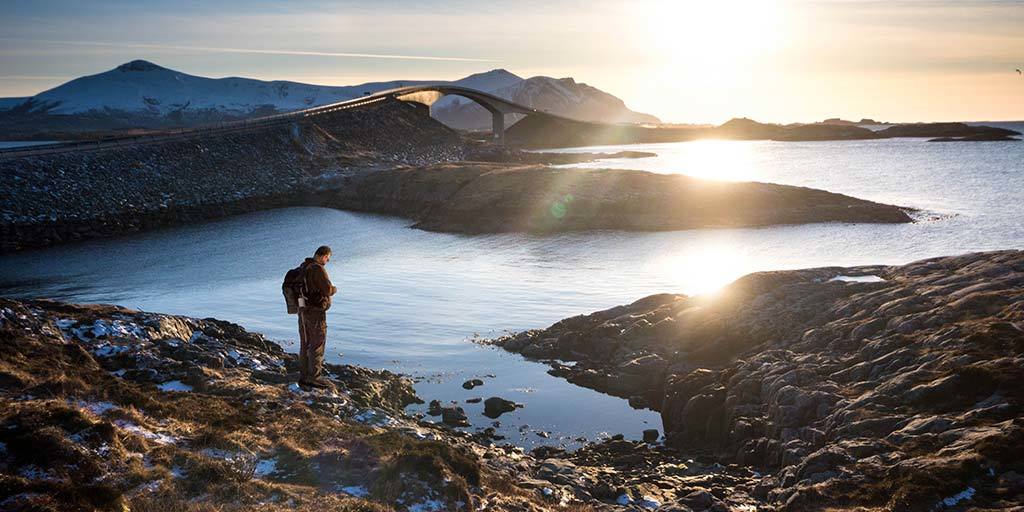Choosing the best reef-safe sunscreen brands in 2023 isn’t just good for your body, it also helps protect the ocean from harmful chemicals that can destroy marine life and coral reefs.
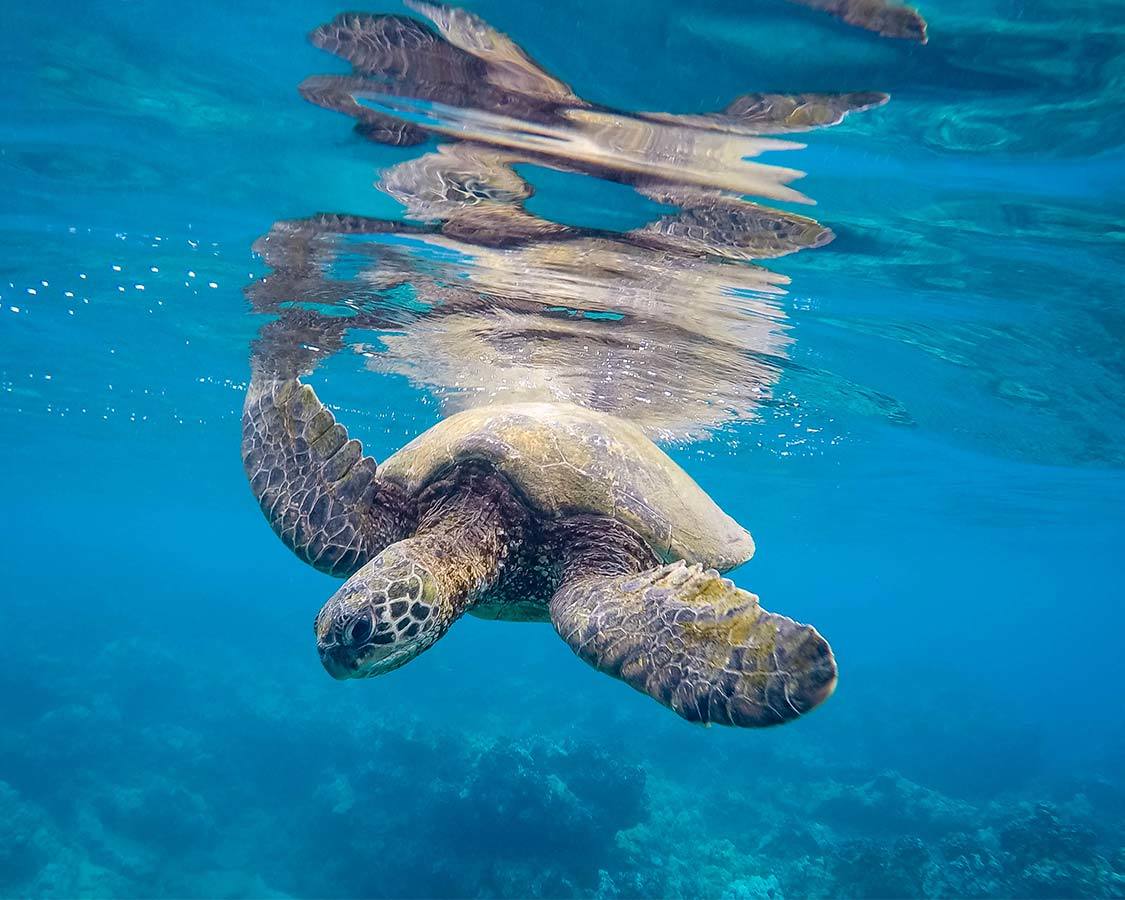
Nothing beats the feeling of slipping into the ocean. Whether you’re splashing in the waves or spending a day snorkeling or SCUBA diving. But more and more, tropical destinations are asking visitors to use reef-safe sunscreen when they visit.
Some popular travel destinations, such as Grenada, have encouraged the use of reef-safe sunscreen. Some, such as Hawaii have even got so far as to ban the use of sunscreen that is not considered reef-safe. This is because of the thousands of chemicals from sun protection products that wash from the skin into the oceans of the world.
Coral systems can be found all over the world. The most famous are the Great Barrier Reef system off the coast of Australia, and the Belize Barrier Reef system on the Caribbean side of Central America. Christina and I actually learned to SCUBA dive in Belize and got to see this beauty for ourselves.
But coral reef systems actually span a good portion of the globe from newly discovered systems in the North Atlantic to further south off the coast of South America. And whether you’re SCUBA diving in the Caribbean or just enjoying a lobster in Nova Scotia, our lives depend a great deal on coral reef health as well.
What Is The Best Reef Safe Sunscreen in 2023?
Table of Contents
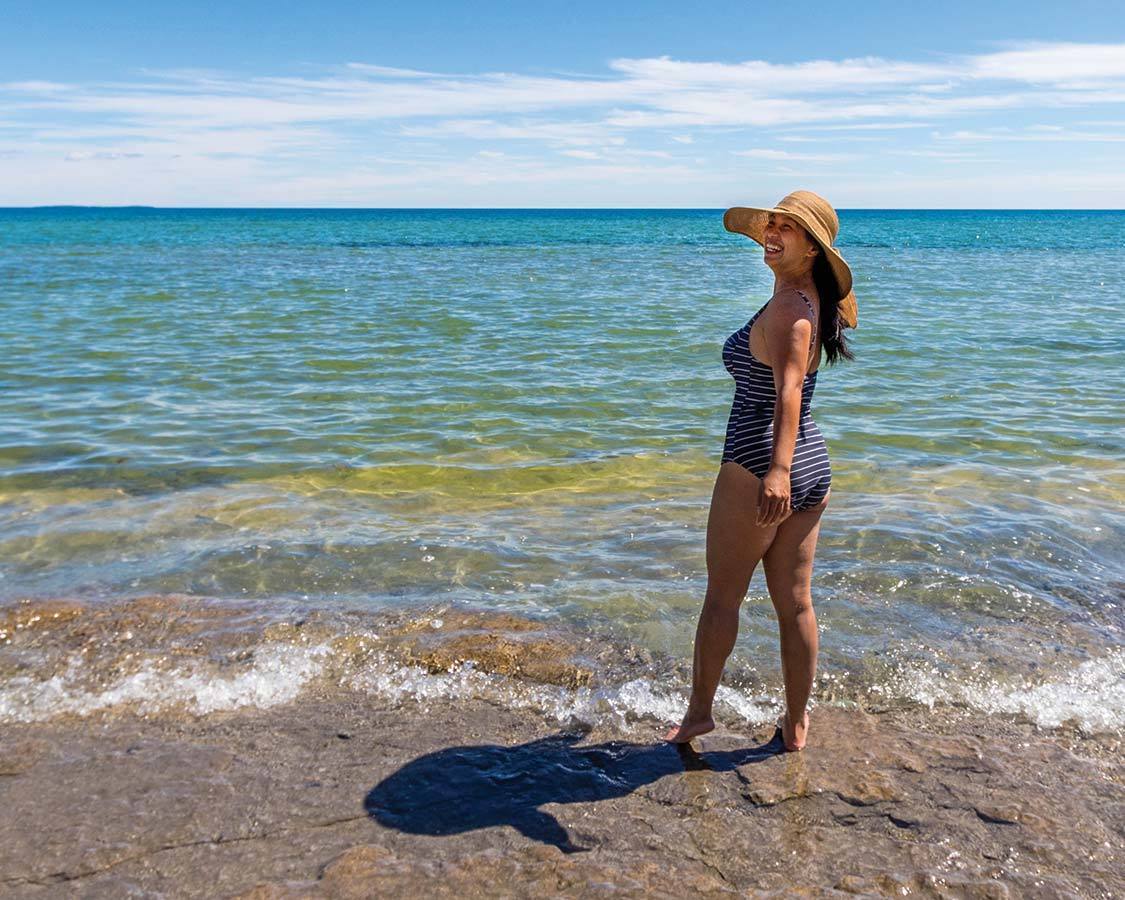
There are a few great reef-safe sunscreens that truly offer practical, affordable, and quality alternatives to chemical-based sunscreens. You’ll notice that we’ve avoided brands with an aerosol delivery system. This is because aerosols are known for their own pollution issues. This includes damage to the human lungs and the ozone layer.
For this list, we try to stick to butter and cream-based reef-safe sunscreen brands. And for those with families, I”ve tried to offer options or alternatives for kid-friendly reef-safe sunscreen brands. Here are a few of our favorite products for this year.
| Banana Boat Ultra | Thinksport Every Day | Badger Clear Zinc | All Good Sport |
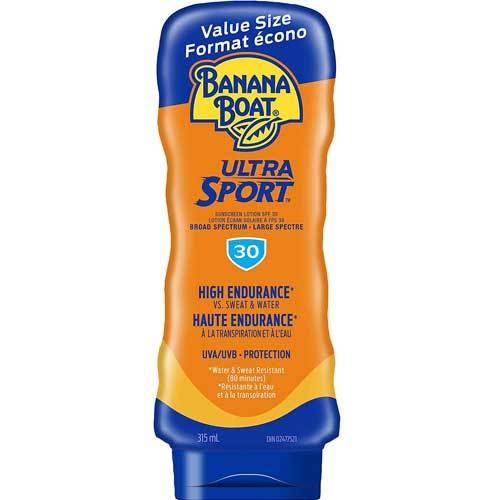 | 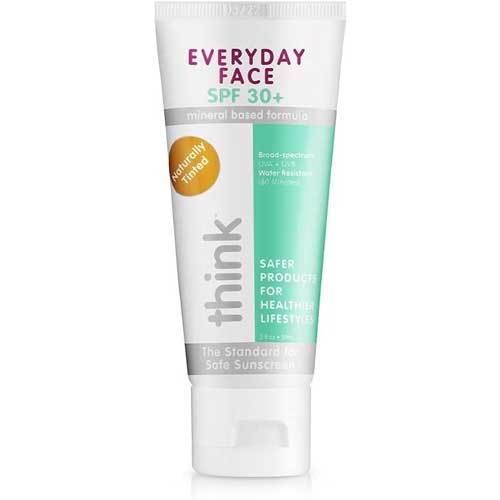 | 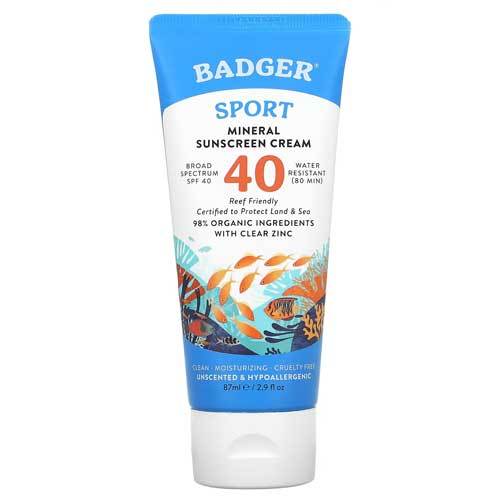 | 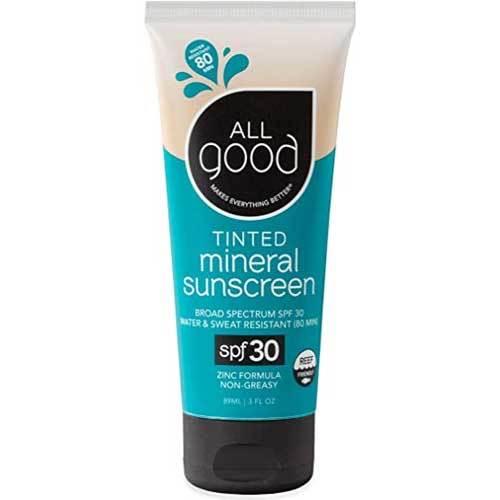 |
| Main Ingredient: Zinc | Main Ingredient: Zinc | Main Ingredient: Zinc | Main Ingredient: Zinc |
| Child Safe: Yes | Child Safe: +6 mos | Child Safe: No | Child Safe: No |
| SPF Level: 50+ | SPF Level: 50 | SPF Level: 40 | SPF Level: 50 |
| Water Resistant: Yes | Water Resistant: Yes | Water Resistant: Yes | Water Resistant: Yes |
 |  |  |  |
1. Banana Boat Ultra Sport

Of all of the reef-safe sunscreen brands that we reviewed, Banana Boat is the most mainstream line. They’re also the only brand that advertised a reef-safe sunscreen that was SPF 50+ and safe for all ages.
Banana Boat has been a staple for generations of recreators to keep them protected from the sun. Unlike other reef-safe products, Banana Boat Ultra relies on synthetic compounds for many of its ingredients rather than naturally occurring zinc oxide. Because of this, Banana Boat Ultra contains neither oxybenzone nor octinoxate the two most problematic reef-destroying chemicals in many widely available sunscreens.
Banana Boat Ultra does use artificial scents and some questionable chemicals, so if you suffer from allergies or sensitive skin, you may want to test this on a small patch of skin first. Overall the Banana Boat Sport line is a worthwhile product available at a great price.
2. Thinksport SPF 50 Sunscreen

Popular sunscreen brand Thinksport offers a widely available, affordable reef-safe sunscreen. Their Thinksport SPF 50 sunscreen does not contain any of the chemicals known to cause coral damage. Thinksport reef-safe sunscreen is water-resistant for up to 80 minutes. It goes on smooth and clear with no sticky residue. Thinksport also offers a face sunscreen as well for those using rash guards. Thinksport coral safe sunscreen is widely available, reasonably priced, and one of the safest sunscreens on the market.
For those with younger children, you may want to consider Thinkbaby SPF 50 sunscreen. This child-friendly, reef-safe sunscreen has been designed with infants and toddlers in mind.
3. Badger Clear Zinc Sport SPF 35 Sunscreen Cream

If you’re looking for a great mineral-based sunscreen that won’t break the bank, Badger Clear Zinc Sport is a reef-safe sunscreen to consider. Badger uses a clear zinc oxide mineral as the base for their product. All the non-active ingredients are organic and non-GMO. This means that this is a child-friendly reef-safe sunscreen. For younger children, choosing a sunscreen with SPF 50 and above is recommended.
Badger Clear Zinc has an SPF rating of 35 and protects against both UVA and UVB rays. The sunscreen is moisturizing and both protects and nourishes the skin. It also doesn’t leave a tacky or oily residue after it has been applied.
4. All Good Sport Mineral Sport Sunscreen

One thing that most of the reef-safe sunscreen brands have in common is that almost all are either a cream or a spray. This is due to the ingredients that make up a great waterproof, reef-safe sunscreen brand. This sometimes means that the sunscreen goes on thick or greasy.
All Good sunscreen brand has developed a lightweight, non-greasy formula that also works to hydrate and repair skin making this one of the best reef-safe sunscreen brands of the year.
5. Raw Elements Reef Safe Sunscreen
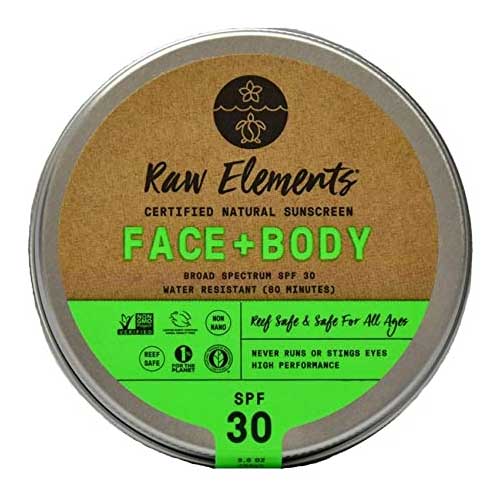
Raw Elements makes one of the top water-resistant coral-safe sunscreens out there. With an 80-minute lifespan, even in the water, Raw Elements is perfect for those who love snorkeling and SCUBA diving. This waterproof formula has a slight odor when you apply it, but the smell doesn’t last once it is on your skin. And upon application, it’s clean, clear, and non-greasy.
The formula is good for both the face and the body, so there is no need to carry separate sunscreen brands around with you. However, if you are looking for a child-friendly reef-safe sunscreen, Raw Elements falls short at SPF 30. I would recommend going back to the Kokua Brand SPF50+ if you are traveling with kids.
What Sunscreen Is Killing The Reef?
Coral reef systems make up the largest living ecosystems in the world. That’s right, coral reefs are actually systems of billions of tiny living life forms that work together to create some of the most complex, beautiful, and bountiful living communities. The incredible underwater ecosystems created by coral give a home to the largest variety of marine life in the oceans. And if the coral dies, all of those creatures that use them to live will not be far behind.
Reports from organizations such as the International Coral Reef Initiative have been working hard to bring to light the damage to marine life that results from pollutants in sunscreen. Some reports estimate that up to 14,000 tons of sunscreen have found their way to coral reefs. And many of the pollutants can cause irreparable harm to these ocean environments.
Some of the chemicals in sunscreen that causes damage to coral reefs include:
- Oxybenzone can cause deformations and coral bleaching
- Octinoxate can cause deformations and coral bleaching
- Mineral Oil, also known as petrolatum does not dissolve and can be harmful to marine life and waterfowl.
- Titanium dioxide reacts with warm water to become hydrogen peroxide which is toxic to marine life
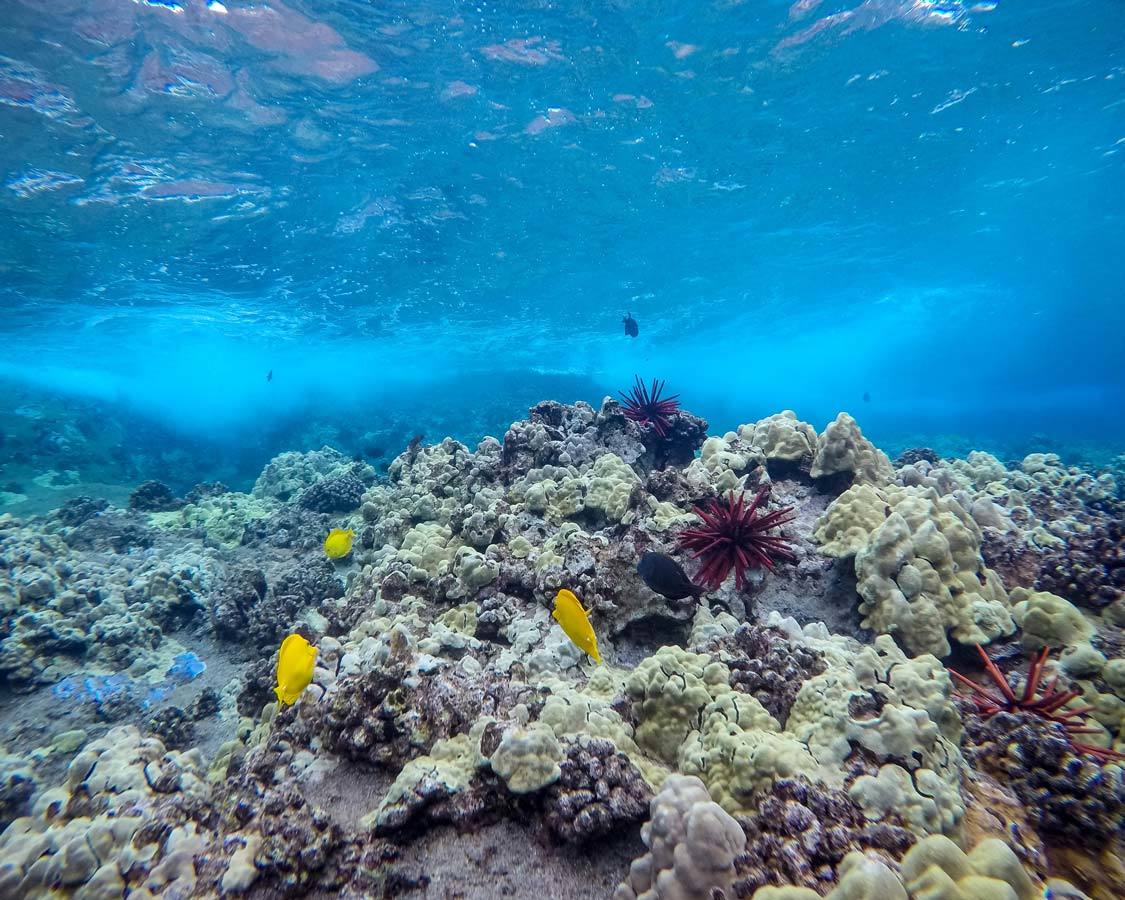
Is Reef Safe Sunscreen Effective?
While reef-safe sunscreen is a great way to help minimize the damage to coral reef systems, it’s important to note that no sunscreen has been proven to be completely safe for ocean life. Whenever possible, using a rash guard offers the best alternative for both sun protection and eco-sustainability.
What Can You Do To Help Stop Coral Reef Damage Due To Non-Reef Safe Sunscreen?
So now that we know that sunscreen brands that are not reef safe can cause terrible damage, we can use this knowledge to protect the very places that we have traveled so far to experience. The first step in protecting these amazing destinations is by using a reef-safe sunscreen. These coral-safe sunscreens use a natural mineral base rather than chemicals in order to protect your skin from the sun. And here’s the good news!
Reef safe sunscreen is often better at protecting your skin from harmful UV rays than chemical alternatives. And what’s better? All those chemicals that leach into the water and kill coral reefs, won’t be leaching into your skin and causing damage to you or your children.
But, there’s a catch. Because “Reef Safe” is not an official term, not all brands labeled as “reef safe sunscreen” are actually being truthful. It’s important to stick to brands that are doing their part and offering mineral-based sunscreens and not chemicals.
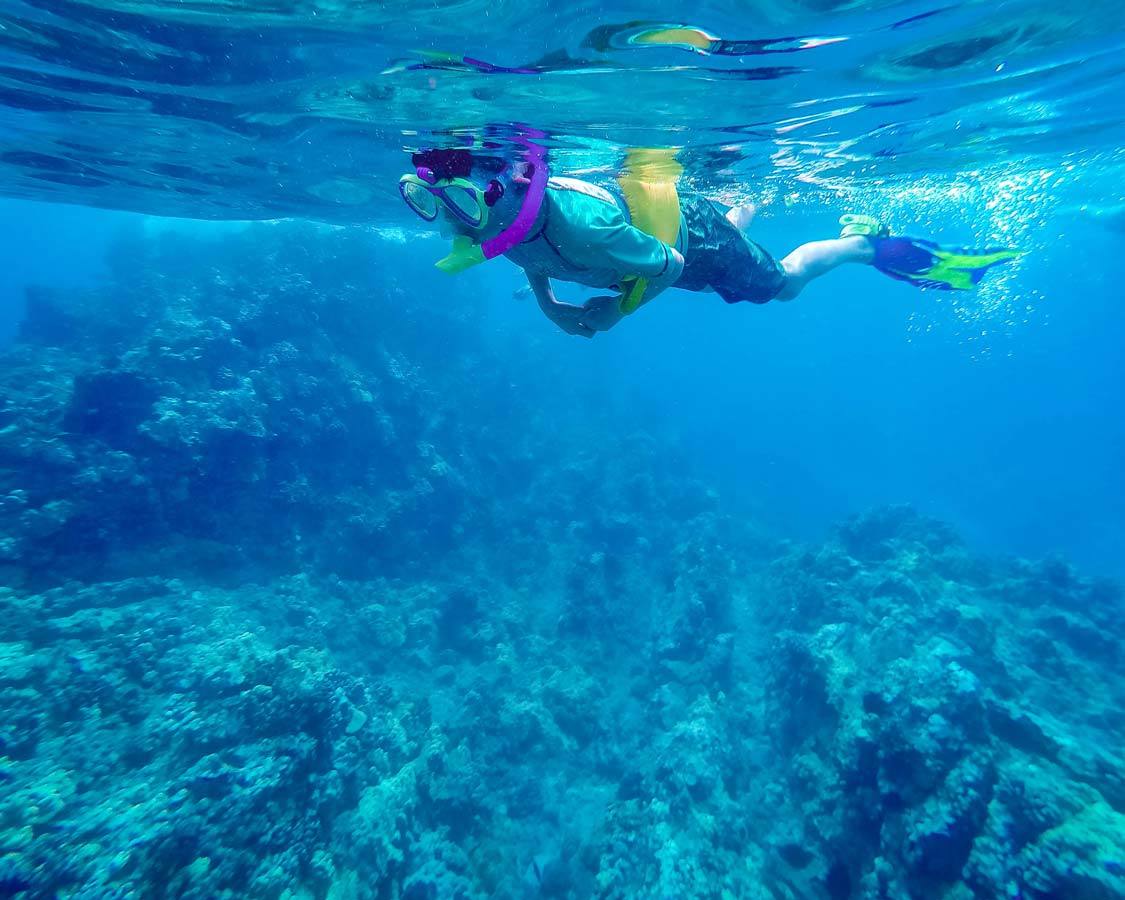
Other Ocean-Friendly Products To Consider
Protecting the oceans is not just about choosing the best reef-safe sunscreen. There are many things that people do in their regular lives that contribute to the pollution and contamination of both fresh and ocean water. Some things require a lifestyle change that is bigger than there is room for in this article. But there are a few simple switches that you can make in your life that can make a world of difference in lowering your ecological footprint. Here are a few tips for getting started.
Switch To Reusable Water Bottles
There is no hiding the fact that plastic pollution is everywhere. consider switching from disposable water bottles to reusable water bottles in order to limit plastic waste. Many water bottles like these even match the size and shape of traditional bottles so you know they’ll fit anywhere you need them to be. They have the added benefit of being insulated, so you’re water will stay cold, or your tea will stay warm. If you worry about water quality, you could always switch to a filtered water bottle. These eliminate nearly all contaminants and leave the water cleaner than even store-bought bottled water. You can check out our complete review of the best-filtered water bottles here.
Use Reusable Coffee Cups
Coffee cups are those throw it and forget things that we can use every day (or sometimes more than once a day). Hundreds of millions of people buy coffee every day, and this leads to an obscene amount of garbage polluting the environment and engorging landfills. By making the easy switch to a reusable coffee cup like this one, and you aren’t just limiting pollution, but you’re making for a better cup of joe too. Reusable coffee cups are super easy to clean and keep your coffee hot for hours. No more lukewarm java on a busy day!
Sustainable Beach Bags
Please don’t bring garbage bags and plastic grocery bags to the beach. That ocean wind will blow them away before you have a chance to grab them. Instead, consider bringing a sustainable, reusable, organic beach bag. If it does get forgotten, it doesn’t contain material that is harmful to marine life.
Help Make The World A Better Place
Do you use reef-safe sunscreen or follow other practices that make our world a better place? Tell us about your favorite brands in the comments. Or head over to our Family Travel Facebook Community and share your tips. We would love to hear your ideas.
Wandering Wagars is a participant in the Amazon Services LLC Associates Program, an affiliate advertising program designed to provide a means for sites to earn advertising fees by advertising and linking to amazon.com, amazon.co.uk, amazon.ca. Amazon and the Amazon logo are trademarks of Amazon.com, Inc., or its affiliates.
You May Also Like To Read:
Pin This Post For Later:
